Kristen Lamb's Blog, page 14
October 29, 2019
On Writing: Why Mastery Should Matter to the Serious Author

Mastery is a concept that many believe is subjective, especially when it comes to writing (novels in particular). There’s an insidious belief that what constitutes good or bad is a matter of popular opinion. Quality isn’t something we can measure.
This belief—that mastery is a matter of taste—has been around as long as the publishing business. Probably longer. If this wasn’t so, then vanity presses would never have made a single cent.
Yet, vanity presses arose to meet the needs of those who believed that the gatekeepers had gotten it all wrong.
Their book was ready for popular consumption, ripe for the public to eagerly hand over disposable income for the privilege of using up limited free time to consume said book.
Sometimes (albeit rarely) the author was right.
Yet, before the digital age, an author had to seriously count the cost of publishing too soon, even with a vanity press.
Literally.
If one was going to hand over thousands of dollars to hold one’s book in hand? Then the author knew the gamble could either pay off big (The Firm), or that they’d end up with a storage unit filled with mouldering novels.
Mastery-Minded Culture
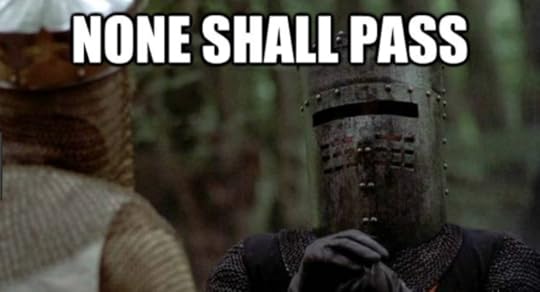 Legacy publishing.
Legacy publishing.When I started writing seriously, the author culture was vastly different. Most writers aspired to mastery. It was a time when artists outnumbered entrepreneurs.
Granted, after a few brutal critique sessions, we pretty much all figured out we’d never craft the ‘perfect novel,’ but that didn’t mean we wouldn’t keep trying to get as close as possible.
Storytelling mastery included learning the basics. We had our worn copies of Strunk & White dog-eared, underlined, and held together with tape. There was a general sense we had to earn the title of ‘author,’ and we didn’t take kindly to shortcuts.
***This was why self-publishing took years to be accepted as a legitimate form of publishing.
Many of us wanted to become authors because we were, first and foremost, avid readers.
We loved books and stories. The idea of honing the same skill levels, attaining the same sort of mastery as our author heroes propelled us forward draft after draft, rejection after rejection.
Times Change

In my early years, tapping out and deciding to use a vanity press or self-publishing was akin to literary blasphemy.
There was also an atavistic response to any kind of self-promotion. It smacked too much of self-publishing bottom-feeder egomania.
This overriding negative attitude was one of the major obstacles I faced early in my career. Trying to convince authors that—one day soon—they’d need an on-line platform to survive was akin to walking around L.A. wearing tin foil shouting the world was going to end (and expecting to be taken seriously).
In my early years as a social media/branding expert, authors believed the publishers would do all that unseemly marketing and promotion stuff. Their only job was to write excellent books.
Then, over time, and due to some seriously bad business decisions in traditional publishing (namely the multinational media conglomerates who called the shots), self-publishing exploded in popularity.
The Big Six betrayed their loyal mid-list authors, cast them into the dust. Amazon picked them up then weaponized them. Legacy publishing inadvertently legitimized what had once been anathema.
Within a decade, the tables turned. Authors in 2009 considered landing an agent the first step to success. After the agent, then the publishing deal with a ‘real’ publisher. Social media was for hacks.
In 2019, I run across more ‘authors’ who aspire for marketing mastery over storytelling mastery. They can’t figure out why they’re not selling any books even though they have a fifteen-book series.
Is it the promotion? S.E.O.? Maybe they need a bigger newsletter or a spot on BookBub?
Maybe. Yet, from what I’ve seen, the major problem—more often than not—is the product not the packaging.
Content
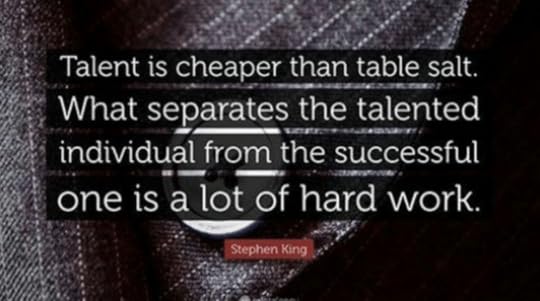
I spent the first half of this month on the road keynoting and teaching, and the second half recovering from keynoting and teaching. This past Saturday was the first time I had a voice, and I’ve been so exhausted I could hardly move.
I’m STILL dragging.
Suffice to say, I put out MASSIVE wattage when I present, and often I present ten hours at a time. It’s no easy feat to keep an audience awake and inspired for ten hours when they’re sitting in comfortable auditorium seats under low lighting.
Anyway, while recovering, I was tempted to dust off my old copy of Stephen King’s On Writing, but I didn’t have it in me to read. So I bought a copy on Audible and listened to it at least ten times (namely the sections that have to do with our craft).
This line, in particular, stood out to me.
If you want to be a writer, you must do two things above all others—read a lot and write a lot.
This might seem like a ‘no duh’ statement, but I cannot count how many times I’ve encountered people who say they want to be a writer but they simply don’t have any time to read. Most of the samples I see? I can tell the writer reads very little if at all.
They don’t have time.
Here, King and I are in total agreement. Anyone who doesn’t have the time to read doesn’t have the time—or the tools—to be a writer (especially a good writer).
Craft classes and grammar lessons aside, reading helps fill our toolbox. We are artisans, crafting people, places, worlds, and concepts with combinations of twenty-six letters.
Would you trust someone to build your house who only owned (and knew how to use) a hammer and saw? Or a doctor who only knew how to wield a scalpel, but skipped learning how to suture?
Yet how many writers are publishing books and they don’t even possess the basic fundamentals of our craft? And are more concerned with a new marketing plan then why people don’t WANT to read their work, let alone PAY to read it?
Is Fiction COMPLETELY Subjective?
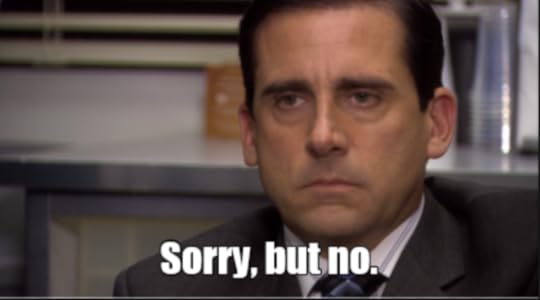
To a degree, yes. But, really? No. Not as much as some might claim.
As I mentioned earlier, it’s impossible to write the ‘perfect’ book, to craft the novel ‘everyone’ will love. This, however, is no excuse to dismiss the true artist’s inherent obligation to pursue mastery.
Did Picasso break all the rules? Yes, but he apprenticed for years, studied the masters, learned the rules and THEN broke them. Like a master mason who’s so familiar with the composition of stone, the feel of its striations, that he knows where to put the chisel and where to steer clear.
Yes, I’ve heard how there are a lot of ‘bad’ books/authors who sell a ton of copies and have a gazillion fans. Yet, I imagine one could look at any one of their books and see the writer at least tells a coherent STORY.
Mastery Begins with Basics
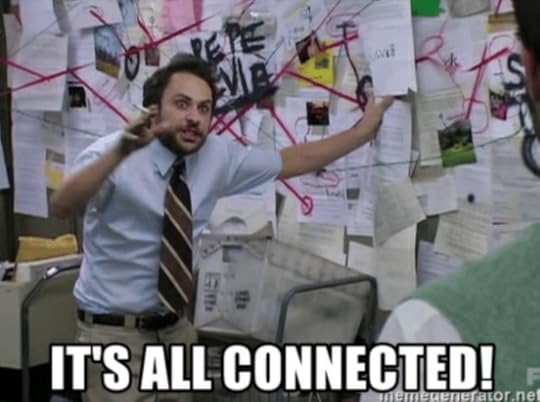
Grammar, structure, vocabulary, punctuation, etc. is for the READER. When we don’t know what P.O.V. is, we’re strapping readers onto Hell’s Tilt-A-Whirl, then have the nerve to be angry when they stumble away green around the gills.
If we don’t punctuate correctly, readers become easily lost. Similarly, grammar is akin to literary road signs that help the reader know where they are and what’s happening.
No signs or confusing signs don’t make for a pleasant drive any more than a pleasant read.
When we botch the basics, readers get a headache trying to untangle what’s happening where and why and to whom. Reading should be a pleasant experience, an adventure the reader never wants to leave.

It is the height of hubris to blame readers if we’ve failed to do all that’s in our power to serve them an enjoyable experience. Stories aren’t simply for our own entertainment, unless writing is a hobby and we have no intention of selling that work.
Mastery takes time, study, practice, commitment, failure, more failure, and discipline. Sad to say we have devolved to a point where the slush pile has been dumped in the readers’ laps.
If we think it was tough to get people to read twenty years ago, what about now when there are a million plus books self-published every year (and most unedited)?
Self-Publishing & Mastery
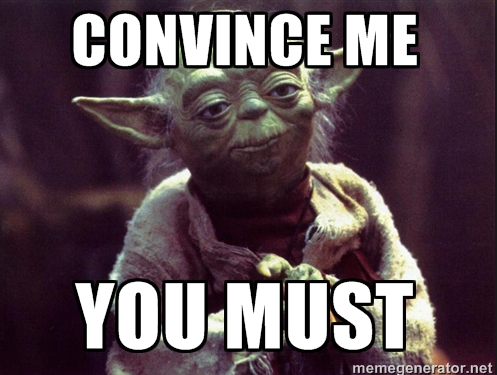
If we take a good look at the runaway successes that have emerged out of self-publishing, we’ll see that most of the BIG ones are pretty incredible books. Read Hugh Howey’s Wool, or Andy Weir’s The Martian, and Wm. Paul Young’s The Shack.
Though The Martian’s hard-science-as-story might not appeal to everyone, it’s tough to argue it wasn’t well-written. Andy Weir simply told a story differently, to a group that NY publishers at the time didn’t believe existed…hard core geeks/nerds.
Weir, and others who’ve successfully self-published, have collected a fanbase because they tell stories other people want to read and can read.
Writing, like any art, has a learning curve. Sometimes, I believe this is what flubs so many of us up. Our culture believes that, because we possess command of our native tongue that OBVIOUSLY our first attempt at a novel should make millions. RIGHT?
NO!!!
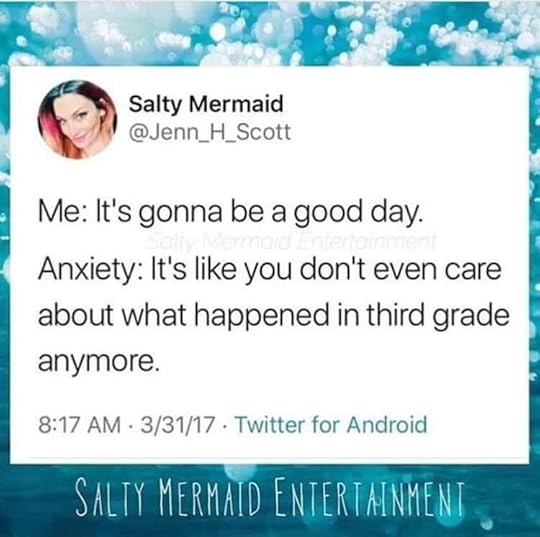
Yet, strangely the same people who believe the first draft of our first novel should be made into an HBO series would never expect a child who picks up a violin for the first time to be ready for Carnegie Hall by the end of the year.
Singers and dancers endure years of training, coaching and have tens of thousands of hours of practice before we’re likely to know they exist.
Mastery in sports, medicine, law, and yes even writing takes dedication and sacrifice. We need training, guidance, practice, mentors, failure, success, and yes…talent and a little (or a lot) of luck.
Mastery Resources
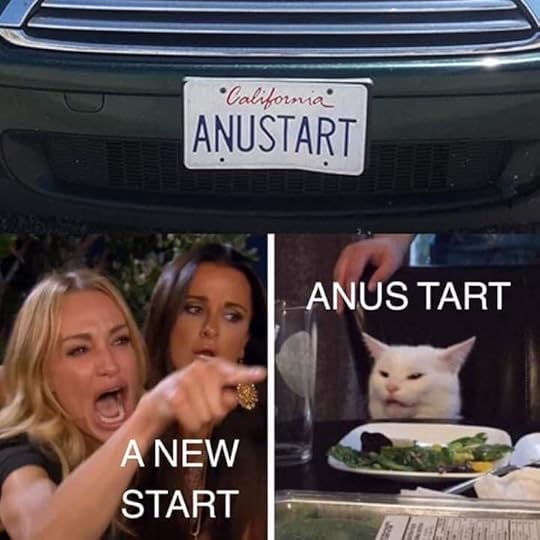 Critics are brutal.
Critics are brutal.First and foremost, if you write fiction then READ fiction. If you’re selling me a mystery then a crime better happen somewhere in the beginning, and I’m not talking about a crime against the written word.
Read a lot, in your genre and out. Absorb the good and the bad. Learn the literary terrain and build your skills using observation. There are super successful authors who claim they never plot.
Yet, I will counter with this.
They have probably read SO many books that structure is hardwired into their brains. These authors gained mastery ‘by ear,’ if you will.
Some people learn piano with an instructor, others pick it up by listening and playing around on a keyboard long enough.
Both ways are hard work.
All serious authors should read (much like all serious musicians should probably listen to music). Yet, there are other tools at our disposal and here’s a list of my favorite in no particular order:
Mastery Manuals
The Writer’s Journey by Christopher Vogler Save the Cat by Blake Snyder Story Engineering by Larry Brooks The Elements of Style by Willian Strunk Jr. and E.B. White Eats, Shoots & Leaves: The Zero Tolerance to Punctuation by Lynne Truss Scene & Structure by Jack BickhamHooked: Write Fiction that Grabs Readers at Page One & Never Lets Them Go by Les Edgerton (one of MY personal FAVES) Plot & Structure by James Scott Bell On Writing Stephen King Danse Macabre Stephen King
Brilliant Blogs (Other than Mine

October 9, 2019
Finding Our WHY: The Beating Heart That Keeps Our Muse ALIVE

WHY do you want to write? Have you ever asked that question? If you have, did you stop to ask it more than once? With all the sacrifice that goes into writing and writing well, finding our WHY is critical if we hope to be successful.
I get it. It’s easy to get so caught up in the zillions of other factors that go into this ‘writing thing.’
In the digital age, there’s so much more authors are responsible for knowing, understanding, doing, and doing well. Things other than ‘the writing’…though the writing should be paramount.
Why do I care about us finding our WHY? Our why is what will keep us going even when we believe we have nothing left to give.
It’s what will keep us pressing when everyone else calls us a fool, and when even WE believe we’re a fool.
Without a WHY, being an author long-term is next to impossible.
Our WHY is the beating heart that keeps our muse ALIVE.

The burning reason, our WHY, is what separates writers from ‘normal people.’ Just so y’all know, it is NOT normal to sit alone and sit still and write hundreds of thousands of words.
***Just FYI, for all the writers. Forget about normal. The Normal Ship sailed long ago without you 
September 30, 2019
Do Some People Lack the Talent to be a Successful Author?

Talent is so utterly subjective. How can we know if we actually have it? Recently, I was chatting with my cousin who’s an incredible artist.
She mentioned how, no matter how many compliments or how many sales, she can’t help but feel like an imposter.
I, of course, responded that authors suffer the same malaise. Imposter syndrome is alive and well, and it doesn’t matter how many books we write, the titles we earn or how many books we sell. For a lot of us? We still can’t help but feel like a fraud.
That we don’t actually have any talent. Oh, and that any moment someone might find out we’ve fooled the world and have no talent at all.
All of this posits the eternal question…
Are there just some people who simply lack the talent to be a successful author?
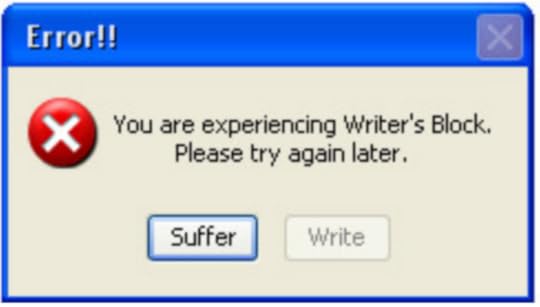
Good question. Especially in the age of digital publishing, when a million plus books and climbing are published every year. Readers are drowning in the slush pile, which is a fairly clear sign of a SEVERE lack of self-awareness. Too many writers are publishing too soon, before the work is ready for market.
And, since this problem doesn’t look as if it will sort itself out any time soon, how do we handle this in the interim? When do we know we’re ready, especially if we don’t publish traditionally?
That’s a big question, so I’m going to tackle this from another, simpler, angle.
My POV?
One huge problem is that far too many people believe that a ‘clever’ idea and command of the English language is all that is required to become a novelist. Yet, that is not the case.
Drowning in BAD Books

Plenty of readers have challenged me to write a post that might serve as some kind of a litmus test for talent, but in truth? Such a list is beyond the scope of my abilities. Why?
Because I don’t know if such a checklist exists.
Sales certainly are no indicator of talent. There are plenty of brilliant books that don’t sell or sell poorly. Then, there are other works that sell a gazillion copies and show us clearly how taste has at least fifty shades.
Some emerging writers possess all the technical skills, yet their writing is uninspired. Their stories are devoid of that certain je ne sais quoi required to elevate the writing above the mundane and tedious.
They write ‘stories’ are flat and functional, much like a DMV building. Sure, the story has the right metaphorical walls and fire escapes.
It could pass inspection, but it isn’t a place anyone would want to get lost in and never leave.
Other writers are completely lacking in the technical skills, yet even with their wobbly first tries, one can see a spark of genius there.
Does Talent Matter?

Stephen King talks about talent in Danse Macabre (and other places as well) and I really love his view on it. He says:
Talent is cheaper than table salt. What separates the talented individual from the successful one is a lot of hard work. ~Stephen King
I firmly believe that and we will get to that in a moment.
Yet, even though King is no huge fan of ‘talent’ he does admit talent is necessary. Even if it isn’t quite the panacea people might imagine.
King equates talent to a vein of gold in a mine. One has to do the hard work of digging for the ore, refining, etc. (the nasty work most people don’t want to do).
He says if you spend an hour and a half a day writing for ten years, at the end of ten years, you’ll be a pretty good writer. Just as if you spent an hour and a half a day digging, mining, and refining ore, you’d eventually have decent stockpile of gold.
Yet, spend ten years refining common earth? At the end of ten years all you’d have is common earth.
Sad to say, but…
Common Earth Writers Exist

In my experience, there is no simple way to spot a common earth writer. Most emerging writers who seem to completely lack talent actually lack something else.
Humility.
Remember at the beginning of this post, I mentioned that too many people believe this job is easy and that, in my estimation, this is the crux of the problem.
In the pre-digital paradigm, not everyone could be published.
This meant that aspiring writers who failed to do the hard stuff—read prolifically, study, practice, take classes, go to conferences, get professional editing help when needed, etc.—languished in the slush pile.
If they didn’t?
One of Two Things Happened
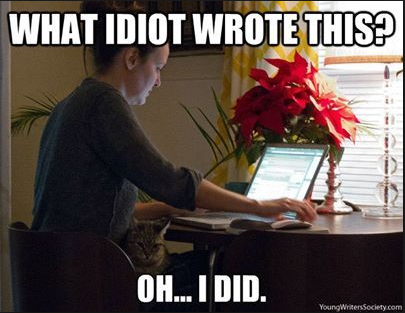
Either the aspiring writer finally gave up after enough rejections OR he/she was forced to take a hard and critical look at the work and improve. Write more stories, and better stories.
Creative crucibles were personal and private affairs.
The reason it used to be a really big deal to call oneself a ‘published author’ was it was a title granted only to those who’d successfully endured the gauntlet. The title was the crown of olive leaves denoting the victor.
A lowly writer had solved the labyrinth and emerged as the highly esteemed…author.
These days no such crown exists.

We authors have been demoted to comparing rankings (which can be juked) and royalty checks (which is just tacky). There are very few ways to measure ‘success’ and know honestly if we are ‘good writers.’
Which can be demoralizing in itself.
In the pre-digital paradigm, simply being published was a HUGE accomplishment. Even mere mortals had a reverent awe for published writers. Being published represented a threshold few were ever able to cross.
Even if an author only sold a handful of books, they were still a success.
Now that ‘success’ has been democratized? I’m not even sure the best writing is what makes the most money. In fact, I’m certain of it.
Pride Before the Fall

I don’t edit as much as I used to. But still, I receive writing samples so bad I wonder if the writer has ever even read a book.
It isn’t fiction, it’s self-indulgent navel-gazing.
The characters sound like little kids playing pretend. Instead of a story, there is ‘scene’ after ‘scene’ of talking, eating, shopping, dressing, drinking, or other characters talking about something or someone else.
Usually that ‘something else’ would make an interesting novel. But no, we’re forced to endure the retelling of this intriguing development second-hand through ‘characters’ flatter than copy paper.
#FlyOnWallofNothingHappening
There’s no understanding of POV (point of view), pacing, structure or even the essentials of good dialogue or basic punctuation.
Too often, the pages I receive aren’t even a novel. They’re tropes mixed with cliches slathered in purple prose.
Which, to be crystal clear…IS FINE. Give yourself permission to be NEW. We all begin somewhere and that’s why people like me exist. We love teaching new writers how to mature and become skilled authors.
And Yet…

I can almost always tell the writers who won’t make it, and oddly it has really nothing to do with the writing.
Often I get a really nasty e-mail in reply that all their friends loved it. Oh, and their writing group thought it was the best thing since kitten calendars. I’ve had people pay to take my classes, only to argue with me the entire time.
Then go blog about what an idiot I am.
It Really Isn’t All About Talent
Yet? Some of the absolute worst writing I have ever encountered was not the end. Their creators went on to be successful. Some made damn fine authors. Why? Because they were teachable.
When I shredded their pages to the point one couldn’t even see the original text, they cried, then got over it and took my offer of help.
They were willing to spend hours on the phone with me showing them how to kill all their little darlings. These authors dove into craft books I recommended, took the classes I offered, did the exercises I assigned.
Since they took their art seriously, they slaved and wrote and rewrote and then? Voila!
Sure, they sucked. Because they were NEW. But one day? They no longer sucked because they were no longer NEW.
I had a winner of my first 20 pages back when I first ran the contest in 2011. Oh my GOD it was bad. But I offered help as I generally do.
We spent hours on the phone and Kathy was struggling. She continued reading my blogs. She took my Hooked class, and I slayed her pages again.
And again.
Yes, y’all guessed it…again.
A Remarkable Thing About Talent

She signed up for my Hooked class back in 2017. I didn’t see her name and just read pages and they were….brilliant. I didn’t want to stop. It was a TRULY excellent submission.
Then I saw the name and almost cried I was so proud. She went on to be a multi-published author who’s doing better with every book.
Another emerging writer paid me for a full edit. The writing and story were superb until the midpoint. Then, it completely fell apart into disaster. I explained in detail how it went wrong and why and what needed fixing and offered suggestions how to make the story work.
Instead of insisting I was a moron with no taste? He listened and got to work. When he sent his repaired manuscript back to me, I immediately forwarded his final to a literary agent friend of mine.
Two days after sending in his manuscript I got a breathless e-mail from the agent that she was simply stunned by his talent. He got a contract and I received GF brownies as a ‘thank you.’
Was it Talent? Really?
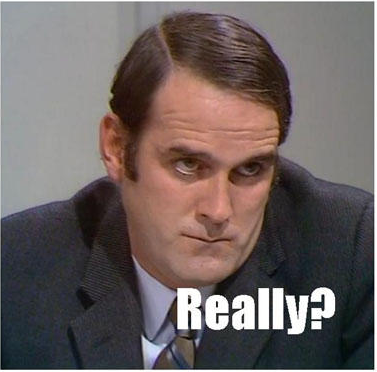
Every time I have run into what might be written off as a ‘common earth’ writer, I’ve seen a person who refused to grow. They brought pages every week for critique and despite help and suggestions?
Never changed.
They refused to read books on craft because they didn’t want their writing to be ‘formulaic.’ They didn’t read fiction in or even out of their genre because ‘NYC only published crap.’
And on and on and on. They just kept recycling the same dreadful writing and once self-publishing made it possible to skip gatekeepers?
These same writers greedily snatched up the title of ‘published author’ but then griped that their crappy book wasn’t selling. And the reason it wasn’t selling? Because they ‘didn’t have the mega marketing budget of a NY published book.’
In their minds, all that was lacking was the right marketing plan, ad campaign or newsletter list. I STILL hear this complaint.
Nope, it’s the book. Not the marketing.
Back to the Mines

When it comes to varying levels of talent (or lack thereof) I think we need to return to the mines. Some mines are easy. Gold dust and small nuggets all scattered about.
Very little effort required to get at the good stuff.
We all want this kind of mine and yet it, too is imperfect. This ‘gold’ also requires refining. Also, gold scattered on the ground is no clear indication of the size of the overall vein.
Maybe this writer has ONE good book in her.
There are those of us who dig through layer after layer with only a dream. Some vague indicators of gold. If we just keep pressing, we will find it. It is there, just an SOB to reach.
Then there are those who go digging for gold and find something else entirely. They strike oil, massive veins of salt, or a giant artesian spring.
Still valuable, just not in the way planned. Some writers begin writing fiction and find they are far better bloggers or they excel at non-fiction. Some discover they are crazy good editors (more skilled at the refining process).
And lastly, there is common earth which I believe exists. These folks are almost ‘tone deaf’ when it comes to storytelling. No matter how teachable, how many classes, the writing will just never be there.
This is the person who can never quite deliver a punchline. This type of writer exists for sure, but may not be as common as we imagine.
In the End

I have no litmus test for talent, but I have a pretty good indicator for skill (and, perhaps, ‘success’). A skilled writer can hook hard, hook early and engage an audience to the degree that there is no logical place for a bookmark.
Is it possible to do this every time? No. We can’t write a book everyone will love, BUT we can write a book a lot of people love.
Beyond this….
Can we remain teachable? Are we striving to grow, to get better, to actively seek tough critics to make us grow?
Do we have rhino-skin? Can we take constructive criticism?
Are we sticking with this long enough to grow that talent? Could we possibly read more craft books or take some more classes to develop our skills further? I have a WHOLE LIST of classes below that are all affordable and you get to enjoy them from home.
Even though I’ve been working as a professional writer for almost twenty years…I STILL TAKE CLASSES. I read every craft book I can get my hands on, and I read two books a week (a fiction and a non-fiction usually).
Can we be brave enough to ask the hard questions and ready to endure the answers? Are we making the most of the editors we hire? Or are we defending and arguing? How often are we writing?
Yes take classes and read but we also need practice. Are you getting enough?
Are we humble?
To me? THAT is what separates the amateur hack from the pro, NOT necessarily skill level.
I LOVE HEARING FROM YOU!
Do you think some people lack the talent to write? That no matter how much training they are utterly tone deaf to story? Or do you believe (like I do) that it’s more often a case of rushing, of not enduring the process to go from NEW to SKILLED?
Maybe there is something in between? I love hearing your thoughts.
And to prove it and show my love, for the month of OCTOBER, everyone who leaves a comment I will put your name in a hat. If you comment and link back to my blog on your blog, you get your name in the hat twice. What do you win? The unvarnished truth from yours truly.
I will pick a winner once a month and it will be a critique of the first 20 pages of your novel, or your query letter, or your synopsis (5 pages or less).
In the meantime, treat yourself to a class! You get a FREE recording with purchase. Let us help you refine that gold! You don’t have to do this ALONE! Oh and people who take my classes get extra goodies 
September 27, 2019
Motive: The Key to Writing Stories Readers Can’t Put Down

Motive is a key ingredient that differentiates stories that sizzle versus stories that fizzle, namely because we all want to know ‘WHY?’.
Why does a character want this or that? What drives them? Who would do such a thing? How did a character become a certain way? Can a character change?
A character’s central motive is the key that unlocks our interest. It’s less about what a character is doing or not doing and more about WHY. If we (the audience) don’t understand or can’t relate to a character’s motivation?
We can’t care.
This is why ‘white hat’ and ‘black hat’ characters are so dull. Humans can’t authentically connect to ‘wholly noble’ or ‘wholly evil’ characters who are for good simply because it’s ‘right’ or or evil ‘just because.’
Regardless what any character wants to achieve—or conversely, wants to avoid at all cost—we (readers) must understand and be able to empathize the underlying motive driving their choices.
Fiction, at its most fundamental level is always cause and effect. We can’t have effects without causes and if we do? Readers will call FOUL.
Don’t believe me? Read my blog about the train wreck commonly known as Game of Thrones‘ Season Eight.
Some Sizzle While Others Fizzle
What makes one book a staple in our library but renders others utterly forgettable? Some books, I can’t recall if I even read them.
In fact, bizarrely enough, sometimes I’ll look at my Kindle/Audible menus and my devices will claim I’ve read or listened the book(s) to completion but…
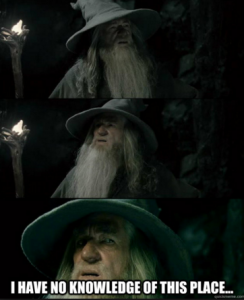
Other books I read over and over. I still revisit A Girl on the Train, Gone Girl, The Luckiest Girl Alive, Dune, What Alice Forgot, Fahrenheit 451, and Breakfast at Tiffany’s, and others because I learn (and see) something new with every pass.
This said, we’ve been talking a lot lately about character/character creation. So, I returned to my favorite books and did some reverse engineering in hopes I might better understand what made the critical difference.
What’s the Character’s Paradigm?

This is to say, what is her reality? Her framework? How does the character define herself? Does he define himself via internal or external factors or both? How accurate is his self-image?
What forms the character’s center? How does the character define his or her worth? What’s the character’s central motive?
We must ask and answer all these questions because, without those answers, a background sheet is nothing more than facts devoid of context. And, to create a dimensional character, context is king.
Paradigms offer context.
For instance, Dr. Gregory House (image above) saves lives. He solves unsolvable cases for patients who, without his help, would be dead. But Dr. House IS Dr. House because of his driving motive.
Patients are puzzles not people.
Same end result—the patient is cured—very different motive. Dr. House is no soft touch with a tender spot for the suffering. In fact, he’s borderline sociopathic which is why his character was so complex.
Bad Decisions Make Excellent Stories
Great fiction is about problems. It is about people with problems. Stories are about a wholly wrong motives that eventually lead to deeper understanding, personal growth, and ultimately better motives.
And the more messed up our characters are? The more we have to work with 
September 23, 2019
Characters: Audiences Read Stories, but Great Stories Read the Audience

Characters are critical for stories that resonate. Why? Because characters are the conduit that connects the reader, that vests them in the events.
We can’t empathize with technology, spaceships, magic, or nuclear submarines. Humans can’t bond emotionally to a place (without the characters as the connection).
For instance, we CARE about Lord of the Rings’ Middle Earth because we care about Frodo, Samwise and Gandalf. And, because Frodo, Samwise and Gandalf care deeply for Middle Earth and the Shire…we do as well.
Story is like the wall socket that’s connected a tremendous power source. But, how useful would those wall sockets be if all the gadgets in everyday life didn’t have plugs? How useful would a bunch of dead gadgets be?
We cannot have story without characters and can’t, conversely, have characters (DIMENSIONAL characters) without story.
Readers read stories, but great stories read the readers 
September 17, 2019
Branding & The Brain: How Social Media Changes but People Never Will

Branding is a word that seems to have one day—POOF—appeared out of the ether. In fact, when I began blogging in 2006 almost no one in publishing used the term. The rare few who did were hard-pressed to properly/clearly define what a ‘brand’ was.
In fact, many authorities believed authors didn’t need to be bothered with silly passing fads like ‘the Internet’ and ‘social media’ until about 2013. Why would authors need to build a brand?
All a writer needed was a good book. Facebook will last a year at best.
Yep.
Today, in 2019, the words ‘brand’ and ‘branding’ seem to be tossed around daily. Everyone and everything is or has or needs a brand. What’s funny is that branding might seem completely new, yet has been around since…people.
Granted how important a brand is, the need for one as an author, etc. is a fairly recent development. Yes, we need to craft excellent books (product) but we also must begin building our author brand EARLY.
***As in the first day we believe we might one day want to sell a book.
Ah, but calm down. There’s a lot of confusion regarding what a brand actually is. Many assume ads, marketing, and promotional campaigns are ‘branding.’
Yeah…no.
We can build a brand, but alas we cannot buy one. There are no shortcuts. Ads, promotion, marketing can help expand an existing brand, but cannot be substituted for one.
This approach is akin to believing a Japanese robot-wife is the same as a real human wife. In some areas of life, shortcuts end up a) a waste of time b) a bigger waste of money c) a remake of Blade Runner.
Branding Basics

I wrote my book Rise of the Machines—Human Authors in a Digital World to be evergreen information. In my POV, social media changes daily, but humans never change.
Just read Shakespeare or look at your ex’s Facebook page *rolls eyes*.
That’s why my social media/branding guide focuses a lot more on the science behind what creates what we recognize as a brand.
What captures our attention? What turns us off? What renders a brand invisible (thus a non-brand)? What habits/behaviors can ruin a powerhouse brand that once seemed bulletproof?
How can one brand launch into the stratosphere with little to no budget when another fails miserably no matter how many millions of dollars are poured into ad campaigns and celebrity endorsements?
Obviously, my book delves into far more detail about the science behind branding. But a little common sense goes a long way.
Thus, today we’ll simply touch on why our everyday on-line behaviors collect into a larger pool we call ‘author brand.’
First…
Branding is NOT New
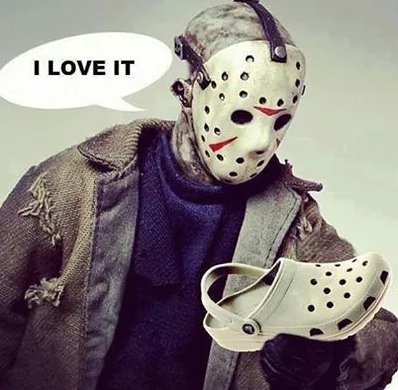
The thing is, humans have always had a ‘personal brand.’ Branding, in its simplest form, is what descriptors we attach to another person. It’s that person’s story.
It’s an innate habit we use to organize and transition the fuzzy and inchoate into the dramatic and memorable.
Branding is simply an extension of story.
That guy/that gal is too amorphous for us to remember. It also doesn’t provide enough detail for us to know how we should respond.
But, ‘That guy who’s been married four times, loves hunting, and collects sports cars’ provides a narrative (a story) that will either resonate or repel depending on the audience.
Humans dig labels, now more than ever before. It’s how we make our increasingly larger world somewhat manageable.
Thus, people we ‘know’ are frequently tethered to a variety of descriptors—vegan, sports enthusiast, triathlete, cat lady, Cowboys fan, craftsy person, the comedian, etc.
There’s the perfect, put-together Pinterest moms and then there’s me….

This, in a nutshell, is ‘branding.’ Humans have been doing this ‘branding’ thing since the dawn of time. The only difference in a ‘personal brand’ and an ‘author brand’ is that the ‘author brand’ should eventually drive book sales.
Also, branding is now more vital than ever before because of the sheer volume of information, people, choices, etc.
This is why author brands are essential, since a brand is basically a beacon drawing people (readers) to something they find familiar and that they already know they like.
Here is where science comes in handy.
The Neurological Shortcut

Our brains are remarkable organs that have the ability to adapt to our environment. Before the invention of the written word, our memory centers were far larger because we had to pass down information orally.
In fact, if you took an fMRI reading of a tribesman from some isolated Amazonian tribe, his brain would look and act very differently from yours or mine.
With the advent of the written word, our memory centers shrank but we gained even larger areas for abstract thinking. This was around the time we start seeing major explosions in science and engineering.
#Pyramids
Now we’re in the Digital Age, and we’re bombarded with stimuli. Internet, television, radio, smart phones, pop-ups, etc. etc. We’ve lost our stellar memory centers and our ability to focus for long periods of time and have gained an unprecedented ability to multitask.
Our brains must process massive amounts of information faster than ever before.
Think about it. We see ads on Facebook all the time. Or do we? Our brains have literally learned to un-see. We cannot manage all the input.
So, if we (authors) are eventually going to advertise our books, how do we make our content visible?
Branding with Intention

Since our brain is much like a computer processor, it must come up with ways to effectively manage all this input in order to maintain efficiency. To do this, it relies on what are called somatic markers.
Somatic markers are neurological shortcuts and are one of the most primitive functions of the brain because they are uniquely tied to survival and procreation. It’s the same shortcut that tells us the stove is hot.
We don’t need to sit and ponder the stove. We likely learned when we were very small not to touch.
To give you an idea of how somatic markers work, let’s do a little exercise. Is there a perfume or cologne you can smell and it instantly transports you back in time?
Maybe to that first love or even *cringes* that first heartbreak? A song that makes you cry?
Perhaps there is a food you once ate that made you sick and even though there is no logical reason you shouldn’t eat it now, the mere thought of eating it makes you queasy.
These are somatic markers. When it comes to branding, somatic markers are vital.
The Pepsi Challenge

If you are around my age or older you can remember The Pepsi Challenge. For years, Pepsi had been trying to gain an edge over Coca Cola, which had dominated the soft drink industry for generations.
Pepsi—figuring it had nothing to lose—came up with the idea of setting up a table in stores and shopping malls and encouraging people to take a blind taste test.
The results were astonishing…to Pepsi more than anyone.
In a blind taste test, people preferred the taste of Pepsi. Coca Cola was rattled by this news.
They performed the same test and it turned out, people preferred the taste of Pepsi…and this led to brilliant ideas like ‘New Coke’ which was one of the most epic brand failures in business history.
Why did New Coke fail?
Coca Cola reformulated to make the drink sweeter. In blind taste tests, New Coke was a clear winner. So then why did it tank so badly?
Somatic markers.
What Happened? New Coke, ‘Old’ Brains

Years later, neuroscientists decided to see if they could demystify what happened in The Pepsi Challenge.
They conducted the exact same experiment, only this time they hooked participants up to an fMRI machine so they could witness what areas of the brain lit up.
They held the taste test the same way it was conducted in the 70s—a blind taste test. To their amazement, participants preferred the taste of Pepsi in almost the exact same numbers.
According to the fMRI, the ventral putamen, the area of the brain that tells us something tastes yummy, lit up like Vegas.
*Some have speculated that when it is only a sip, people will prefer the sweeter drink.*
The ‘Human Factor’ in the Brand Equation

The scientists then decided to try something a bit different. They did the test again, only this time they told the participants what they were drinking. This time, Coca Cola won BIG.
Ah, but something strange happened in the brain.
Not only did the ventral putamen light up, but so did the prefrontal cortex, the area of the brain associated with emotion and memory.
See, when it was based on taste alone, Pepsi won. But, when the brands were compared, Coca Cola won. The human brain was in a wrestling match between two very different regions—taste and emotions.
Coca Cola had the advantage because of the vast reservoir of fond memories associated with the brand. In short, Coca Cola had a STORY for sale.
Norman Rockwell Americana, cute polar bears, I’d Like to Buy the World a Coke, every BBQ, summer vacation, rollerskating parties, Friday nights with pizza and on and on all were part of the Coca Cola arsenal.
The fond memories (positive somatic markers) associated with the brand literally changed the taste and gave Coca Cola the winning edge.
Somatic Marker Meets Baader-Meinhof Phenomenon
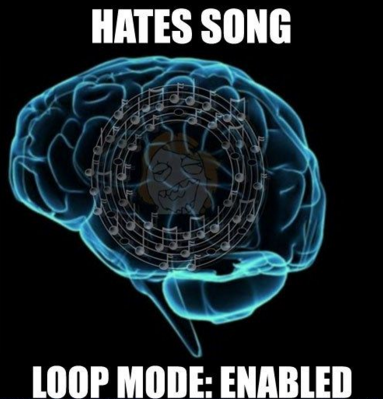
Ever run into a term you KNOW you’ve never heard in your life, then hear it at least four more times in the next week? Or see something you know you’ve never seen before, then suddenly it’s everywhere? Reverse-harems? Punk-Rockabilly-Zydeco? Kombucha?
I’d never heard of Bikram Yoga until a friend told me about it and then…it was everywhere. Following me with sweaty mats…and Kombucha O_O .
The Baader-Meinhof phenomenon is also known as the frequency illusion or the recency illusion.
At first glance, one might think this is why it’s a great idea to automate everywhere! Churn out lots of ads! Exposure! The more people see me, my name, my face, my book, the BETTER!
Not so quickly.
The Baader-Meinhof phenomenon seems to kick in strongest when there’s some kind of an emotional response tethered to the ‘thing.’
Interestingly, the stronger the emotional response (positive or negative), the more likely we will see that car, food, book, name, that we suddenly believe is now everywhere, surrounding us.
Ah, but when it comes to OUR brand, what emotional response are we creating? Are people seeing our name because of some good encounter?
Or do they see it and silently rage because we keep crapping up their feeds with automation? Are we all take and no give?
Ads That Pop-Up vs. Ads That POP
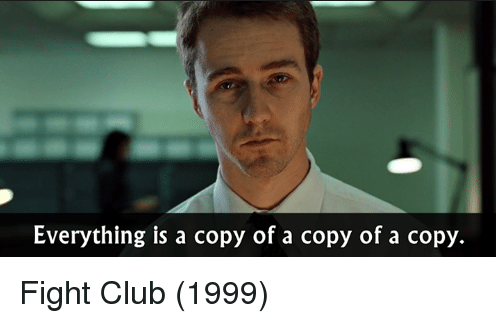
We see ads all over. More than ever before in human history, which is why our brains are getting so clever with shortcuts. Most ads we literally do not see.
I could take any random person and have them click through twenty pages of BuzzFeed memes and they’ll remember the memes (emotional), but are unlikely to remember most of the ads plastered all along the sides.
Though most ads will be invisible, some are not. Some might even leap off the page. Why?
What makes us ‘see’ that advertisement?
When we have a highly positive or vastly negative experience, we’re far more likely to notice the ad.
If we see an ad for a book, we may or may not notice. But what about an ad for a book written by someone we know?
Someone perhaps we talked to and liked? The ad practically leaps from the page. We might even buy it because we SAW her ad and OMG! I know her!
Ads alone have very little power to compel a purchase. But, couple them with a brand (story/narrative/emotional experience), and the odds of a sale greatly improve.
This is why ads and promotion alone do very little to impact sales. Until there is a narrative (emotion) attached to the name?
It’s expensive white noise.
Ah, but what’s worse than a non-brand? A poisoned brand. If our brand is the story connected to our names (and by association our books), there can be nothing worse than the toxic brand.
The Biggest
 I’m just spreading awareness…
I’m just spreading awareness…The biggest brand fail I witness is how much authors underestimate the power of social media behavior and its consequential impact on their author brand.
Social media is a massive part of our everyday lives. Everywhere we go, we see people fixated on smart phones, posting pics, messaging friends. Humans are wired to be social, so if you want to know where all the readers are? They are on-line.
***Whether this is good or bad is for another post entirely.
This said, we must appreciate that this isn’t 2008, the age before smart phones, a time when only early adopters lurked on Twitter and MySpace.
Back before roughly 2015, the largest and strongest part of the author brand happened to be the books (because a book is roughly 15 hours of interaction with the author’s ‘voice’).
But now? When people are constantly checking in with their favorite social site(s)? How we ACT and treat other people is the biggest part of the brand. It doesn’t matter how well we write, how awesome our books are, or how cheap we make our product.
If we poison our brand with too many negative somatic markers, we can devastate our brand, regardless how well we write, and the reason is this:
The most powerful somatic marker of ALL is the negative one (namely because it’s intrinsically woven into our very survival).
This is why that tuna salad that gave you food poisoning fifteen years ago still makes your stomach heave just thinking about it. Your body is warning you that this food might kill you (even though logically, you know this tuna salad is fresh).
The primordial brain doesn’t care about logic. Lizard-brain is ALL emotions and experiences and these experiences have a MASSIVE impact on our brand.
There are authors I used to preorder their books. Now? I wouldn’t accept a book of theirs even if it were free.
Why? Because they forgot that people are watching, that flesh and blood humans are on the other side of that screen.
Their ranting, raving, complaining, spamming, name-calling, and trolling comments eventually added up so many negative experiences that there was pretty much no way to counter the effect.
Brands are no longer just about the books.

Books are vital, but what elements are we adding to our story (our brand) when we’re online? When people see our content do they smile, laugh, feel good, want to share the fun? Or do they feel bullied, depressed, overwhelmed, targeted, or defensive?
Colin Shaw’s blog ’15 Statistics that Should Change the Business World but Haven’t’ collected some interesting stats that I’d like to share:
It takes 12 positive experiences to make up for one unresolved negative experience. – ‘Understanding Customers’ by Ruby Newell-Legner.
A dissatisfied customer will tell between 9-15 people about their experience. Around 13% of dissatisfied customers tell more than 20 people. – White House Office of Consumer Affairs.
70% of buying experiences are based on how the customer feels they are being treated. – McKinsey.
When we’re on social media…
Everything Matters
Every post, comment, retweet adds to the story that is our author brand.
People might not remember exactly what we say, but they’ll always remember how we made them feel. In an age where audiences are flooded with too many choices, they’ll default to who they know, who they like, and who consistently makes them FEEL the best (loads of positive somatic markers).
Does this mean we can’t express opinions, that we need to be a cute kitten meme factory and Pod Person? Not at all. My advice is we’re wise to promote what we love instead of bashing what we hate.
For instance, if I’m a vegan and post ’12 Reasons Vegans are Sexier’ on Facebook, then fellow vegans will experience a positive somatic marker.
Those followers who aren’t vegans likely won’t react at all (a neutral somatic marker) because I’ve not placed them in the crosshairs of an attack. In fact, the non-vegan followers might even SHARE my post with vegan friends and family. And if not?
No big deal because we’re all still friends who can agree that we can be friends without being clones.
Keeping the ‘Social’ in Social Media
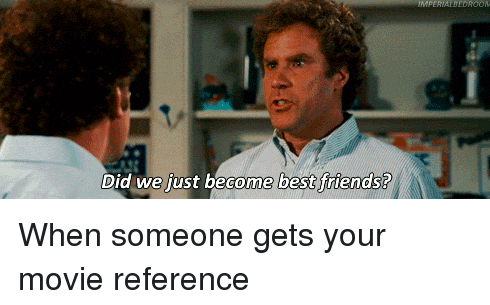
Now that y’all have had a Neuroscience 101 crash course—and I guarantee you will see Baader-Meinhof OR Kombucha at least three times in the next week—let’s get down to what’s most essential.
Branding is all story.
It’s a collection of emotional experiences that tie our name to some set of descriptors (hopefully positive ones). This is why automation can’t substitute for hopping on-line and talking to people. It’s why the Golden Rule still rules and why YES, goofing off on Facebook and posting kitten videos counts as branding.
Eventually, with love, care and nurturing, followers can become friends and even FANS.
So have fun. Relax. Show up. Be present and engage authentically. Go write great books and enjoy the people you meet along the way.
Coming UP!
If you want to know more about author branding and how to cultivate your own unique story that will attract your unique audience, I’m teaching some killer classes (and remember ALL our classes come with a FREE recording with purchase):
Branding: When Your Name Alone Can Sell
This THURSDAY. Use Brand10 for $10 off. My goal is to teach you how to build a brand so powerful your NAME sells books so you don’t have to. More writing and less *gags* marketing.
Spilling the TEA: Blogging for Authors
Blogging is a powerful way to build an author brand and also make a great income doing what we love…writing. Use Tea10 for $10 off.
As for craft I have a COMPLETELY NEW CLASS!
The Art of Character: Writing Characters for a SERIES
Next Tuesday!
How do we create characters that readers will fall in love with, characters strong enough to go the distance? Find out in this THREE-HOUR class that also comes with detailed notes and a character-building template. Use Binge10 for $10 off.
This class dovetails with my previous class, Bring on the Binge: How to Plot and Write a Series (NowON DEMAND). Use Binge10 for $10 off.
Also, one of my partners in crime, Maria Grace has a totally new craft class THIS FRIDAY!
Populating Planet X: Character Building for Science Fiction
How do we craft human stories when our characters might not be human? Science fiction relies on technology and world-building, but ultimately all great stories are people stories. Use tinfoil10 for $10 off.
This class relates directly to More than Crop Circles: Intro to Science Fiction On Demand. Use tinfoil10 for $10 off. It also ties directly to Not in Kansas Anymore: Science Fiction World0Building On Demand. Use tinfoil10 for $10 off.
Come join all the nerdy fun! See y’all in class!
The post Branding & The Brain: How Social Media Changes but People Never Will appeared first on Kristen Lamb.
September 13, 2019
Thirteen Reasons Writers are Mistaken for Serial Killers

Writers really are a strange breed and just so y’all know? The normal ship sailed without you a long time ago so relax. Your family or friends might not ‘get’ you but your fellow writers do.
I love being a writer. It’s a world like no other and it’s interesting how non-writers are simultaneously fascinated and terrified of us. While on the surface, people seem to think that what we do is easy, deep down?
There is a part that knows they’re wrong. That being a writer, a good writer, is a very dark place most fear to tread.
Happy Friday the 13th! *evil laugh*
In fact, I believe somewhere at the FBI’s BAU (Behavioral Analysis Unit for the non-writers), there’s a caveat for the profilers. If they think they’ve profiled a serial killer, they need to stop and double check to make sure they didn’t just find a writer.
Hint: Check for empty Starbuck’s cups and candy wrappers.
Writers, if you are NOT on a government watch list? You’re doing it wrong.
Seriously. I once spent an entire afternoon googling Fort Worth hotels to find the right one with a balcony to toss someone off of. I was like the Goldilocks of Murder.
Nope doesn’t face a street.
Not high enough to be fatal.
Don’t want them landing in a pool.
Apparently ‘normal’ people do not do this, which is why being normal is totally boring and for luzrs 
September 11, 2019
Authors: Taking Charge of Our Future in a Time of Uncertainty

Authors have certainly endured our fair share of upheaval. We witnessed a business model that had barely changed in over a century collapse in less than a decade.
Many of us felt the initial seismic activity back in the 90s when the big-box stores obliterated the bookstores we’d known all our lives. Witnessed the places we learned to love reading shutter one by one.
Those aisles where we daydreamed that maybe…just maybe one day WE would be on those shelves? Vanished.
We retooled the dream. Imagined our books in large hardback displays in the front of a Barnes & Noble. Or, perhaps on a kiosk next to the coffee bar at a Borders.
Then that went away as well.
Now, thrust into a digital age where anyone can be published and it seems there are too many hats for one head? It’s hard not to get discouraged.
But, writers are a tough breed.
Straight Talk

I started blogging for a number of reasons. First, I had zero self-discipline. I was a flake who started projects I never finished and was addicted to excuses.
After taking a hard look at my character, I knew my dream of becoming a mega-author would always be just that—a dream—unless I changed. Blogging trained me out of perfectionism, thickened my skin, and forced me to get out of my comfort zone.
It trained me to show up day after day, week after week, year after year no matter how I felt or what was going on in my life. Authors have deadlines. Funny thing? Life doesn’t stop simply because we have a deadline.
Family members still get sick, need care and sometimes pass away. Crises happen. The professional author still writes the words day after day no matter what.
I hit a turning point where I faced the truth. If I wanted to be like the authors I admired, I needed to do what they did even if it meant starting small.
The second reason I began blogging seriously was because, after attending my first conference, I noticed something that disturbed me deeply. Writers had absolutely NO clue about the business of their business.
And, because of this ignorance, authors failed to recognize their value. This made them objects of derision and vulnerable to predation.
Authors & Power

My early conferences—pre-digital age—were a real eye-opener. Writers, in my POV, have always suffered with crippling self-doubt. Fiction is very subjective and we bare our heart and soul in our work, so to put our ‘art’ out there is especially terrifying.
Back when I started out, there was no such thing as self-publishing as we know it. If you didn’t land an agent, GAME OVER.
Authors flocked to conferences and practically wet their pants trying to talk to an agent (myself included). I remember the anticipation of my very first conference, how I honestly believed the agents would be thrilled to meet us, excited to hear about our books.
Boy, was I in for a rude awakening.
***As a caveat, obviously not ALL agents/editors acted this way. But far too many did. Good news is most of them are now GONE.
Looking back, it seemed every conference had at least one agent who took great delight in making the authors cry. I still have memories of me standing in a hotel corridor consoling some woman I didn’t even know, telling her it was okay.
I was dumbfounded how horrible many agents and editors treated authors. They talked to us as if we were beneath them. Sort of like the agent who laughed in my face in February of 2008 when I pitched a book on social media for authors.
Actual Quote: Facebook is a fad just like audio books.
Back then? To listen to many of the agents/editors, watch their body language? It was easy to conclude that meeting new authors was a necessary, albeit unseemly, chore in the tedium of being a…New York agent.
Many openly mocked and castigated authors for mistakes and ‘stupid’ questions about the publishing business. A business we had NO WAY of knowing anything about before being published.
The Trap

At the time, agents demanded authors submit/query only one agent at a time, but with no guarantee they’d get back within six months or even a year…or even EVER. And there was a not-so-veiled-threat that they (agents) would know if we submitted elsewhere.
And that there would be consequences. But we weren’t to send a follow-up query asking our status or call because, again, there would be consequences.
With every conference, I found myself growing angrier and angrier.
Agents chastised authors to be professional, to treat their writing like a business yet shared almost nothing about how the publishing business actually worked. The ‘business stuff’ was their job.
Publishing was as mystifying to the aspiring author as it was to the regular reader. Sacred knowledge was not shared, because if it was, then the hoi polloi might forget their place.
I hit my boiling point when I overheard an agent mocking an author pitch to a colleague. Everything after this is a bit vague…
I remember rounding the corner and (not very quietly) telling the agent how she still reeked of eau de college bookstore, and how DARE she talk to an elder, let alone someone who’d PAID to be at a conference like that?
Sweetheart, we still have a job without you. You, however, don’t have a job without us.
…and I’ve not been back to that hotel, but meh. Whatever.
Knowledge is Power

Of all the early conferences I attended, most of the sessions were on craft (which, of course, is critical). Yet, there were NO business classes, unless one counts ways to pitch an agent or editor.
To be fair, before e-pub, Smashwords, and Amazon, there wasn’t a lot about the publishing process authors could control.
Thus, it made sense there would only be classes on what we could control (e.g. the query, the quality of the book).
There was a reason authors focused on the writing. Agents and editors handled almost everything else from selling the book to a publisher, negotiating the terms, negotiating the print run, distribution, placement, tending to the proofing and cover art, etc.
We didn’t mess with all that…until we did.
I’d already started a blog to a) train out the flake and b) to demystify publishing. Had already posited that social media would be the single largest shift in human communication…ever.
I even predicted that authors (novelists, not just non-fiction authors) would have the ability to create an audience before the first book was even finished.
I saw the potential in social media, how it could be used for good or not-so-good. Authors, however, needed training. They had to understand the business of their business.
Author Knowledge & Storycraft: Product

One of the reasons people like me recommend pre-published writers to read A LOT is that it helps train ‘the ear’ for story.
Story is a lot like music. A five-year-old can tell when someone hits a sour note in a song. That same five-year-old can also sense the sour note in a story.
If you don’t believe me, try to cheat when reading a bedtime story to a little kid. Try stopping in the middle, pretending the story is finished and see how quickly they call you out 
September 4, 2019
Fiction Addiction: 3 Simple Ways to Make Your Series HOOK Readers

Series are HOT, HOT, HOT! As in hotter than ever in the history of fiction. Granted, series have always been popular. When I was growing up (back in the B. Dalton days) I’d deliberately look for authors who’d published multiple books—series in particular—because if I liked the first book?
I could BINGE!
My early teen years are a blur of Dragonlance, the Dragons of Pern, The Belgariad, Star Trek books, the world of Dune, and more.
Readers have gravitated heavily to series in all sorts of genres for decades. From Sue Grafton’s Alphabet Series, to Tony Hillerman’s Leaphorn & Chee series, to J.K. Rowling’s Harry Potter series and beyond, the trend is clear.
Humans LOVE stories that can go the distance. We can’t resist a good story, and once we’re transported into a world we LOVE? It’s tough to kick us out.
This is true with books as well as film.
***And, with Amazon being the one of the biggest fish in publishing and filmmaking? This is very good news for writers.
Series are GOLD…or Crack

I know this blog mostly focuses on the publishing industry, but Hollywood was one of the giants to collapse under the digital tsunami. Publishing wasn’t alone in getting a tail-kicking.
Hollywood lost its lock on the industry for a number of reasons.
First of all, location, special effects experts, and stunt people not as important when you have computers and software. Low-cost computers and software. Also, Hollywood (much like the Big Six Publishers) lost their virtual monopoly on distribution.
Then, add to this that audience preferences have been changing and BOOM.
*sounds of sinkhole appearing beneath Hollywood*
We’re less likely to go to a movie theater, and more likely to stay home. Since Hollywood seems to think we need Transformers 23 and Smurfs 17, and every movie REMADE over and over, the big screen has lost much of its appeal.
Amazon was among the first to add film-making to their repertoire. And, since they work smarter not harder, they solicited rights from authors who’d already penned successful series (e.g. Michael Connelly’s Harry Bosch series).
The networks, Amazon, Netflix, Hulu, Cinemax, Showtime, HBO, scads of micro-channels and YES even AT&T are ALL now in the film business. Unlike Hollywood, these folks aren’t looking for a ninety-minute blowout blockbuster cast with megastars.
Nope.
They’re on the HUNT for print series that already have captured audience imaginations and come with a ready-made fanbase. Why? Because then they can turn these books into season after season of binge-watching joy.
Unlike Hollywood, they aren’t in the business of serving up microwaved leftovers. They understand there are more stories out there that could be fabulous on the screen.
With lower production costs, audiences who CRAVE series, and their own lock on distribution? Series are a solid bet almost every time.
The 21st Century Soap

Why are series SO popular, aside from the lower risk and higher odds of profit?
Audiences have changed. The 21st century is a very different world.
Many of us grew up with daytime television, where the major networks were king. Soap operas held strong appeal because many women still stayed home and college kids had time to kill between classes.
Cable was expensive and we had to pay actual money to rent movies or go to a theater.
These days? Pretty much everyone works and television has a TON of competition, from social media to video games. While soaps are still around, the viewing audience these days is looking for a way to unwind at the end of the day or on the weekends.
Series have proven to be one of the best ways to captivate a massive reading/viewing audience because they have a unique capacity to go viral, and in doing that, to become woven into the very fabric of popular culture (e.g. Game of Thrones ).
As I write about in my branding book Rise of the Machines: Human Authors in a Digital World, stories are a different product. Lower prices and traditional advertising and marketing won’t sell books. Never have and never will. Why? Because a book is an emotion-driven purchase.
***Most regular people don’t consider themselves readers. It is peer pressure that converts non-readers into evangelical fans (e.g. Twilight, Hunger Games, Harry Potter, 50 Shades of Grey, The Girl with the Dragon Tattoo, etc.).
Peer pressure is essential for any book (or series’) success. If a series can take hold and enough people read/watch? Others, who maybe normally would never have read/watched a ‘high fantasy’ series, join in because they feel ‘left out.’
They want to be IN on the jokes, the discussions, arguments, and memes.

Now that I’ve made my case in favor of series, what can we do if we want to write a series?
How can we make our series addictive?
Series: Addicted to a Unique Character

This is where we need to dig deep and use our imagination. Whose story can we tell? What sort of ‘person’ would possess a story that’s wholly unique?
Can we create a character who is SO larger than life, that audiences can’t get enough?
Yup.
Jeff Lindsey’s Dexter series is a superlative example. Dexter Morgan is a serial killer…who only kills BAD people. Audiences get a front-row seat in the mind of a pure apex predator and a high-stakes ride-along with a sociopath who’s faking being fully ‘human.’
Robert Galbraith’s Cormoran Strike series is now on Cinemax as C.B. Strike. Cormoran Strike who is a) the illegitimate son of a rockstar father and super-groupie mom b) is former Royal Military Police c) a decorated war hero who lost his leg in an IED explosion d) who then turned private detective who e) has an unusual attraction to unstable and dangerous women.
I’ve read almost the entire series, and a main character THIS colorful was always begging to be put on the screen.
Series: Addicted to a WORLD

Regardless of the genre, there is always a degree of world-building even if it’s the world of being a P.I., a homicide detective, or an intelligence agent.
This said, obviously there are other genres that require a MUCH higher degree of world-building. Do this well and your series world becomes a holodeck audiences never want to leave.
The challenge is to create a world where audiences connect via familiar turf presented in new and fresh ways.
Obviously, I already mentioned the runaway HBO hit Game of Thrones, based off George R.R. Martins’ series A Song of Ice and Fire. For all us nerds who grew up on D&D and binging fantasy fiction? This series hit us in the feels of what we once knew…but in a far grittier and vastly more dangerous form.
There’s also Diana Gabaldon’s romantic time-traveling saga, the Outlander series, which Starz adapted to screen in the series…Outlander. Why does this world resonate?
Because it is SO over the TOP. Great fiction is just that…GREAT (more on this in a bit).

Finally, I’ll mention a relatively new favorite of mine…iZombie. Our culture is obsessed with zombies, but Chris Roberson and Michael Allred reimagined what exactly a zombie WAS.
Instead of the mindless mob/pure monster, Liv Moore (who gets infected) realizes she’s technically dead, her appearance has changed (pale skin and hair) and she craves human brains. But, so long as she feeds she doesn’t go ‘full Romero’ (a.k.a. mindless monster). Which is WHY she gets a job in the morgue.
This way, she can feed in an ethical way…but there’s a catch.
Upon consuming a corpse’s brain, Liv can see glimpses of that person’s memories from when they were alive. She also picks up abilities from the brains she eats…which makes her ideal for solving murders.
Granted, Liv totally qualifies as a character addiction, but don’t be too surprised when the world around these zombies and the tough moral questions hook you and you can’t let go.
iZombie, which began as a graphic novel series and ended up with FIVE seasons produced by CW is now available on Amazon Prime 
August 28, 2019
Pay the Bookseller! Why C.E.O. James Daunt Won’t Save Barnes & Noble

Pay the bookseller. Novel idea. Sort of like my whole idea that we should pay the writer. Alas, every time I study the book industry, no one in charge seems to understand why paying those pivotal to your business is kind of a big deal.
I was going to blog on something else, but this morning I awoke to the New York Times article:
For me? This is not CHAPTER 2, it is a steaming pile of Number Two.
Call of Doody: Battle of the Books

First of all, this NYT title is grossly inaccurate and misleading. Daunt might have rescued the UK chain Waterstones, but his rescue plan had very little to do with directly combatting Amazon.
In fact, it was precisely because Daunt didn’t engage with Amazon that Waterstones managed to regain financial footing.
One of the single largest business decisions that killed Borders—as well as Barnes & Noble—had to do with crap tactics. Both giants engaged the competition (Amazon) on terrain where their adversary held almost total dominance.
*throws history book at screen*
The Internet reminds me of Russia. Only those born to it prosper and only fools believe they can win a war against the harsh elements they’ve never studied let alone mastered.
Bezos was only too happy to let Borders try to invade. Amazon hunkered down, and Borders ended up eating all their metaphorical horses before they finally starved.
Did B&N learn? Nope. And the oil froze in their Nooks.
Maybe y’all think I’m being melodramatic, but…
In my recent blog post Amazon Publishing: The Road to Conquest & How Bezos Razed New York, I mentioned how Borders was struggling but doing okay, until they broke the deal they’d made with the devil Amazon and got the bright idea to go it alone on-line.
Can anyone say, ‘Waterloo?’
Similarly, Barnes & Noble—apparently visited by the same ‘Bright Idea Fairy’—launched the Nook, and hemorrhaged over a billion dollars.
Why? Because they didn’t learn from Borders and believed they could win a land war in Asia book war on-line.
*pictures Amazon sitting inside near roaring fire drinking vodka and playing checkers*
What Daunt Did Well

So let’s just get some facts straight. C.E.O. James Daunt didn’t rescue Waterstones because he took on the big, bad Amazon. Amazon wasn’t why the Waterstones stores were bleeding out.
Daunt went head to head with traditional publishers. Publishers were killing the bookstores.
Daunt forswore the $38 million in ‘co-op fees’ which gave the publishers the power to display the selection of books they liked and wanted to sell. Problem was that what the publishers wanted to sell rarely coincided with what customers wanted to BUY/READ.
The co-op fees, enticing as they might have been, were undermining sales overall. Daunt was savvy enough to appreciate that bookstores wouldn’t survive if they kept putting the publishers’ desires ahead the customers’.
Daunt also gave Waterstones a heavy makeover. They didn’t all look alike. Some were big, some small, some didn’t have the name Waterstones at all.
***Went a little Dr. Seuss there.
Cutting the Co-Op

The co-op system was an albatross. Publishers were smitten with their Buy Two Get the Third Free but, according to Daunt, customers rarely found the third book they wanted (FREE or not).
Waterstones, at one point, was returning TWENTY PERCENT of their inventory for remaindering.
For those who don’t know how traditional publishing operates, the physical bookstore system is consignment-based.
Publishers send books they believe will sell. Booksellers, however, eventually return unsold books to publishers at the publishers’ expense.
But also at the booksellers’ expense because failing to sell TWENTY PERCENT of your inventory is—to use a fancy business term—bad juju.
Bookstores lose money, too, because they have to pay their staff to rip off covers and box them to ship back to the publishers. Time that could be better used selling books.
With Waterstones shipping back roughly a FIFTH of all inventory, this translated into millions of dollars in losses (for both parties) every year.
To continue was madness. Got it. Yay James Daunt.
Daunt vs. Traditional Publishing

Daunt finally convinced the publishers to work with him and offer a discount on all the books, not just those hand-selected for specialness.
He then started changing up all the stores, making them resemble the smaller independent stores of yesteryear.
Each location had unprecedented control over which books they stocked and where.
“He’s (Daunt) essentially created a series of independent bookstores with the buying power of a chain.”
Tom Weldon, Penguin Random House U.K.
After untangling the co-op albatross from around Waterstones’ neck, the chain dropped from TWENTY PERCENT of inventory shipped back to publishers down to FOUR PERCENT.
***Currently, according to the NYT article I’m referring to today, Barnes & Noble averages TWENTY to TWENTY-FIVE PERCENT of inventory is returned to the publishers.
#OUCH
The Oblique Attack: Atmosphere
Daunt ditched the co-op payout, empowered the individual stores to curate their own inventory, thus making each location highly unique and individualized. For the most part, each bookstore’s inventory currently reflects the community it serves.
Waterstones also made a big deal out of making their bookstores a place people wanted to go and maybe even stay awhile.
This is probably the only area I’d grudgingly concede Daunt ‘fought’ Amazon.

Because for me, the fight really hasn’t ever been with Amazon. Bezos, from the beginning, wanted to create a system that catered to readers. That a book would become popular because readers enjoyed it.
This idea that a small group of of intellectually isolated elites could choose what the rest of the country wanted to read was absurd.
For those isolated elites to then insist the books they enjoyed should comprise most of a bookstore’s inventory, despite regional, cultural and linguistic differences? Height of hubris.
And we’re somehow shocked that B&N returns an average of 25% of its stock?
So, with everything thus far, I agree a thousand percent that Daunt did an excellent job.
But here is where we begin to part ways.
Who is Achilles James Daunt?
When you open , there’s this smart picture of James Daunt next to a fairly misleading title (as we’ve already discussed).
The only direct jab at Amazon is in reference to creating stores with atmosphere as opposed to a quick on-line transaction.
Whatever. They DO know Amazon is opening stores that are catering to local tastes, preferences and offering all sorts of cozy feel-goods and extras, right?
Right?

Anyway.
The first third of the article is inspiring, and refreshing. After ten years ranting on my blogs, it’s nice to see someone making sound business decisions for a change.
I was impressed that Daunt had no problem going head-to-head with the major publishers. I liked that his new approach lowered waste, increased profit, and that he’d streamlined staff to allow time for the stores to recover.
Then we get to the second part of the article….
*heavy sigh*
The article gushes on and on about Daunt, how he’s the son of an ambassador, how ‘he joined the corporate finance department of J.P. Morgan in Manhattan, shortly after graduating from Cambridge University in 1984.’
Um, all right. Interesting stuff.
How though he loved the money, but ‘his wife, Katy Steward, recoiled at the prospect of 40 years of dinnertime stories about stock swaps and high-yield bonds.’
Ok. Yeah, sounds like a total drag.
We learn that the very wealthy Daunt has an unusual approach to his globe-trotting family vacations that he takes with his wife and two children.
How they’ve backpacked through Romania, Ethiopia, and Cuba blah blah blah.
All well and good. I found it interesting and the article would have been fine had it ended here.
But it didn’t.
For those who kept reading, this pseudo-personal profile gave the last third of the article a…’Let them eat cake’ vibe.
Same $#!&, Different C.E.O

Borders died because they got greedy. Barnes & Noble imploded because of greed. Traditional publishing (namely the multi-media conglomerates that own them) are dying off out because of…y’all guessed it, GREED.
What all these folks have in common, was they believed they could prosper while shivving those who mattered the most.
Namely, the writers and the small bookstore chains, the indie and mom-and-pop bookstores…and finally the actual book sellers (the retail people).
The Big Six didn’t want to wait on golden eggs, so they let Borders and Barnes & Noble talk them into gutting the goose that eventually cooked all their geese.
That is a serious gaggle of @$$hattery right there.
***For those who don’t know what I’m referring to, go HERE.
Granted, Daunt’s plan is doing a ‘better’ job of getting lesser known authors in front of readers. The writers are doing ‘better’ under this new model.
Better being a relative term.
But, what I simply cannot understand is how NO ONE in charge gives a rip about the second most important person when it comes to selling books.
The retail folks on the floor and in the trenches! What is WRONG with you people?
Pay the bookseller!
When the people who work for you have to launch/sign a petition to ask for a living wage? Call me pissy, but I don’t want to hear about bougie trips to some place called…Jura.
And I don’t give a single fig about how you argued with an Italian showroom designer—at a posh London restaurant—about how the perfect angle of a book on display should be three degrees not four.
Let’s circle the wagons back to what really matters.
You Can’t Afford to Raise Their Pay?

Can anyone in this industry MATH?
By Daunt’s own admission, the percentage of remaindering has dropped sixteen percent. Sales are up, waste is down. Employees are selling books instead of boxing them.
So…why not reward them?
Daunt also agrees the starting pay is ‘rubbish,’ but then he loses me. To increase pay would cost $6.2 million the company doesn’t have.
Even though, according to the April 2nd, 2019 article, James Daunt says pay row obscures ‘decent progress’ at Waterstones via The Bookseller:
Under Daunt, Waterstones has returned to profit, reporting a pretax profit of £20m on sales of £386m in the year to end April 2018, and Daunt said the current fiscal year would see continuing improvement. But he said the business remained fragile.
Philp Jones
If I am understanding correctly, Waterstones went from dangling over the precipice of imminent bankruptcy…to now boasting $16.4 million in pretax profit on $317million in total sales.
That massive improvement can’t be leveraged to raise a paltry $6.2 million to keep the workers who made this gain happen from walking out the door?
Y’all can’t, I dunno, offer profit-sharing?

All righty.
Better Pay is Possible if a PRIORITY
Daunt, to my dismay, takes a hardline stance with the employees. His idea is that employee pay will increase incrementally over time, once someone proves they are loyal or some crap.
According to the New York Times article, Daunt claims that, “…the point is to provide an incentive to stick around, even if that means stinting on those who will not.”
Who will not.
All right, so they can’t make a living wage to eat and have a roof over their heads, but if they leave for a job that pays them better…they just weren’t committed enough?
What I dislike immensely about the Daunt Payment Plan is it’s directly related to time served. And I quote:
“We pay people more if they are committed to us than if they are only staying for a year.”
C.E.O. James Daunt
But maybe they’re only staying a year because they can’t afford to remain in a job with such low pay. A thought?
Also, let me get this straight.
If a brand new bookseller is always on time, never absent, hustles hard and sells a ton of books for only a year, he/she is still paid crap because they’ve not been there ‘long enough.’
Yet, another employee who maybe still lives at home and has no dependents, who has the means to stick around for the pay boost is rewarded…even if that person does the bare minimum to remain employed.
Ok.
Time alone is a terrible metric for measuring the value of an employee. But that’s my POV.
The Benefits of Higher Pay

Galen Emanuele’s article, Why You Should Pay Your Employees as Much as You Can articulates this beautifully. But, this is basic common sense.
First of all, better pay attracts and keeps exceptional employees. This drastically lowers turnover and the cost of hiring and retraining a continual stream short-term of replacements.
Treat your employees better…and they do a better job.
*shock face*
Don’t take it from me. Check out Fortune’s Top 100 Places to Work.
This article in Business Insider uses Costco as a prime example. Costco employees cite pay, benefits, and job security as the main reasons they love what they do.
On top of this, Costco actively creates ways for employees to grow and move so they CAN envision Costco being their career.
I can personally attest to how successful Costco is at employee retention. I’ve been shopping at three-four different Costco locations over the past fifteen years. I know the names of most of the employees…because they’ve been there for YEARS.
Costco offers premium pay and benefits from DAY ONE.
Not, ‘Hey if you’ll endure an undeclared number of years of crap pay, maybe there will be a little something shiny in it for you at a later, undisclosed date.’
How can staff be productive if they’re busy looking for a better job or worrying how to pay the food bill?
Daunt would do well to think about his priorities.
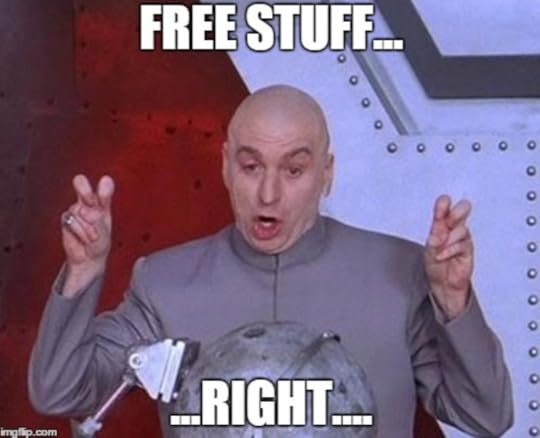
Oh, James Daunt is mad about how certain Waterstones locations have installed additional power outlets for university students ‘who consume more power than coffee.’
He has no problem with Waterstones providing free electricity to a bunch of students who are there for the free power and free wi-fi and who aren’t buying books.
“We’re playing the long game…When those students are rich and famous, they’ll buy books from us and the cost of the electricity will be paid back in spades.”
James Daunt
But taking the hit to pay employees better? Rewarding them for how far Waterstones has already come?
Trusting that better pay will make them feel valued and thus will inspire employees to be more passionate, enthusiastic and evangelical ISN’T a worthy long-game investment?
So letting students sponge off the light-bill totes doable, because they might buy books ONE DAY when they’re rich and famous (because books are like Porsches and polo ponies).
Enabling users and takers is a super smart plan, but paying employees who’ve already created value and who are only adding MORE value is a horrible business decision.
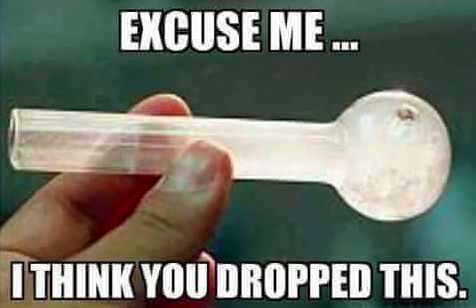
Want to Save B&N? Pay Matters
Daunt would be wise to remember that Barnes & Noble isn’t out of the weeds yet. Far from it.
If leadership continues this trend of paying/rewarding workers as little as possible—then bragging in the New York Times about exotic family trips around the world—Amazon will poach Barnes & Noble’s best talent.
How do I know this? It’s what they’ve been doing for a DECADE.
The Big Six, Borders & Barnes & Noble didn’t value the mid-list author, and Amazon happily picked up those authors and offered them better pay. As of a month ago, Amazon’s Thomas & Mercer poached Penguin Random House’s biggest author, Dean Koontz. How?
Hint: Better pay.
***Koontz is only the largest of a number of big-name authors who’ve already defected because they want to continue having a career.
Amazon is already opening physical bookstores that are smart-stocked, and offer a cozy feel and bells and whistles. Sorry, Mr. Daunt but you don’t have an edge there.
Besides, does Daunt actually believe Amazon won’t happily poach the best of B&N’s employees the same exact way?
By PAYING them more?
And this all seemed so promising.
Daunt has already demonstrated creativity and tenacity in other areas.
I believe he can use the same imagination and fire that rescued Waterstones from tanking, and use his mad skills to figure out some way to properly compensate those who grind daily in the bookselling trenches (quickly…NOT in a decade).
For what it’s worth, we writers value our bookseller advocates and cannot thank you enough. We appreciate your passion and all you sacrifice to promote reading and our books.
As for the big bosses…
No One Home

The article closes with Daunt bemoaning how Waterstones’ employees never pick up the phone. He notes that a sign of progress is when he can call a location and someone answers.
Fewer than half of the Waterstones’ locations passed this metric.
And the band played on the phone rang on…

Announcements
TOMORROW, I will be teaching Bring on the BINGE: How to Plot & Write Series. Series are a fabulous way to build a fan following AND make really excellent money (when done well). This class is 2.5 to 3 hours long (and YES, all classes come with a FREE recording).
We’re going to cover all aspects of how to write a series, the different types of series, and so much more.
As I mentioned last post, Maria Grace will be teaching Taking the Plunge: How to Write Deep POV on FRIDAY. This is TWO HOURS of professional instruction about how to ROCK Deep POV.
Treat yourself! Feel free to wear this to class 



